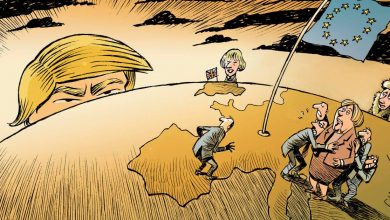As the Ink Dries: What’s in the Brexit Agreement?

The EU and the United Kingdom have both received a rather unusual stocking stuffer for Christmas: a 2000-page-document agreed to on Christmas’ Eve, the long-sought Brexit deal. This document is the product of considerable back and forth, and it details the rules of Euro-British relations after Britain’s transition outside the Union – for the first time since 1973.
The agreement is still subject to review and cancellation by both parties and needs approval by the British and European parliaments, as well as by the Council of the EU. All EU Member States will also have to ratify it before it takes effect. There isn’t enough time left to get it done before the expiration of trading rights – which were supposed to lapse in January 2020 but were extended by one year to the dawn of 2021. EU Ambassadors have already stated that trading rights will be extended again, until the Council and Parliament vote to ratify the agreement.
What’s Been Agreed To?
As of December 13th, well past the initial deadlines for an agreement supposed to take effect at the end of the year, agreement on what was to be done in the case of abrogation of the accord and fishing rights in UK waters were still outstanding. Brussels and London eventually resolved this, even though it was by then impossible to have a new regime in place by the end of the year. The question of fishing remains perhaps one of the most perplexing aspects of the entire negotiations, with bizarre prominence both during the talks and in the text itself.
A free trade agreement with zero tariffs and quotas for all goods had already been agreed to by both parties. This is something the UK has already touted as the ‘largest’ free trade agreement ever and more than a justification for Brexit which would leave it in a privileged place along with Canada and Australia in regards to the community. This privileged trading position is, nevertheless, one which inhibits the prior free trade in services that the UK enjoyed as an EU member. All services account for over 80% of GDP. These include: financial, retailing, computer, medical, legal, realty, transport, hospitality and entertainment, to name only the most prominent,

The true body blow to the British economy, however, is the exclusion of financial services from the agreement. One of the mainstays of British power since the long-gone days of empire, its far reach kept London in competition with New York and Hong Kong on the short, gilded list of global financial hubs. Now, British finance will no longer have a privileged position in the EU. Paris and Frankfurt are likely to gain further ground, perhaps replacing the City altogether as the centre of European finance.
Though perhaps not as dire, the competitive position of British insurance companies – like the much-vaunted Lloyd’s of London – will also be in jeopardy. Other services too will no longer enjoy privileged status. Their professionals will need to apply for certification to practice in the EU. The services themselves may be taxed or subject to limitations.
These aspects of the new relationship are not new. Both parties entered into the final round of talks knowing, and accepting, that the UK would have to live with these limitations. The major point of contention was the continued acceptance of EU rules governing the quality and safety of traded goods, and what to do if they were no longer adhered to. The UK would agree to accept EU rules, not in perpetuity. They wanted to be able to change them and still have access. The EU stated that in such cases the playing field might no longer be level for its producers. They proposed arbitration before the European Court of Justice with the imposition of tariffs and quotas anew as a possible outcome.
Intervention by the European Court in adjudicating disputes was anathema to Brexiteers of all stripes. The talks were at an impasse. The break came when – after almost a year of discussions – the UK put forth a last-minute proposal to set up independent arbitration. In this context, London also accepted the imposition of tariffs and quotas as a possible remedy. The way was paved for an agreement on fishing rights and a final accord. Unfortunately, the clamour of contentious issues on the allotment of the fishing catch drowned out the critical question of its sustainability. One can only hope at this point that the green, or in the case of fish blue, aspects of future sustainability were taken into account.

British citizens will no longer have free access to the EU. There was no agreement on further cooperation in defence and intelligence. The popular Erasmus programme also will no longer accept British students – though there is an exception for Northern Ireland students, thanks to Ireland’s generous volunteering of funding for their northern neighbours.
Northern Ireland will also remain within the EU’s trade zone, with a special agreement allowing the border between Northern Ireland and the Republic of Ireland to remain open. Some commentators have quipped that London has managed the rather unremarkable feat of creating a free trade area that is actually smaller than the UK’s national borders. A further review of the Brexit agreement is scheduled for 2024, at which time the clauses may see further changes by mutual agreement.
The Future of Brexit
Lorries are already queued up for miles around Dover and throughout Kent – but this is now largely due to Covid restrictions, imposed recently because of new strains found in the UK. French President Macron has promised to lift restrictions for lorries tied to Covid. The often predicted queues from a no-deal Brexit will even under this agreement be likely to replace the Covid tie-ups with new ones, even before they are dissipated. This is because the late hour will leave no time to sort out loose ends.
Even if the EU ambassadors have their wish and the current status of the movement of goods is extended until the agreement can be ratified, the absence of detailed implementation regulations, which still need to be drawn up, will create impediments and slow border crossings. Such simple things as new tariff codes, lorry drivers’ passports, proper paperwork and compliance documents, will need to be worked out. It will be well into spring before trade is flowing smoothly again and until summer to return to normal.
Financial markets have already factored in the much greater effect Brexit will have on the UK. This does not pre-empt further deterioration. Absent other agreements with the United States, and some key markets in Asia, the UK will be stuck with diminished trade. Overall economic conditions will follow, though it is difficult to sort out precisely the effects of trade from those of COVID-19 and other geopolitical developments.





